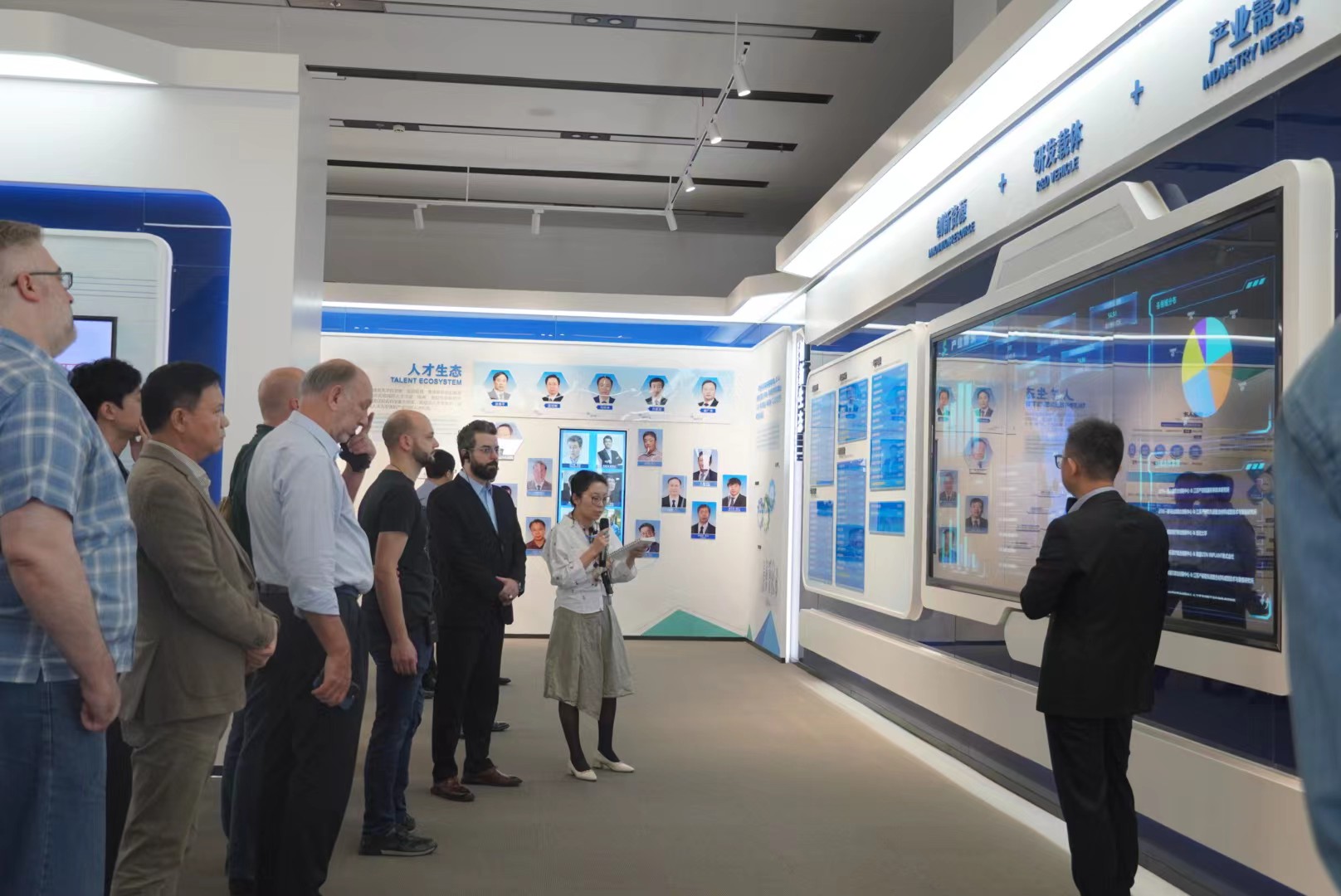
Asad Khalil?visits?Jiangsu Industrial Technology Research Institute?this?October.?(PHOTO:?Foreign Talent Research Center)
By Asad Khalil
Nanjing's future as a sci-tech hub is underpinned by its unwavering commitment to innovation. The city is becoming a magnet for forward-thinking individuals and businesses, driven by its innovation-friendly ecosystem. Collaborative research initiatives, public-private partnerships, and incubation programs are poised to foster a new generation of innovative enterprises.
Moreover, emerging technologies are on the cusp of transforming various sectors, from healthcare and manufacturing to transportation and energy. Nanjing's investments in these transformative fields are set to redefine the landscape of innovation.
Sustainability is another pivotal aspect of Nanjing's sci-tech future. The city's dedication to environmental stewardship and clean energy is evident in initiatives that promote eco-friendly practices and reduce carbon emissions. As global concerns about climate change intensify, Nanjing's role in developing and implementing sustainable technologies and solutions will be instrumental in achieving broader environmental goals.
The city's thriving education system is also a driving force behind its sci-tech prospects. By nurturing young talents, offering research opportunities, and fostering a culture of curiosity and exploration, Nanjing's institutions are equipping the next generation with the skills and knowledge needed to thrive in sci-tech fields. With strong emphasis on STEM (Science, Technology, Engineering, and Mathematics) education, the city is building a talent pool that is very beneficial for future innovations.
Nanjing's well-connected transportation infrastructure and its active government support add to its appeal. A city that is easily accessible and where the government actively supports research and development efforts is primed for success in the sci-tech realm.
Nanjing's future in the sphere of science and technology is exciting. The confluence of innovation, emerging technologies, global collaboration, sustainability, education, infrastructure, and government backing positions the city as a key player in shaping the future of sci-tech, both regionally and internationally.
Nanjing's international collaboration programs play a crucial role in contributing to the country's development in several significant ways:
1. Knowledge Exchange: International collaboration programs in Nanjing bring together experts and scholars from around the world, facilitating the exchange of knowledge and expertise. This knowledge transfer helps China stay at the cutting edge of various fields.
2. Global Perspectives: Collaboration of Nanjing public and private sectors with international partners broadens the perspectives and insights brought into China's research and development efforts. This diversity of thought and approach is invaluable for addressing complex global challenges and spurring innovation.
3. Technology Transfer: Nanjing’s International collaboration programs often involve partnerships with foreign companies and research institutions. These collaborations can lead to technology transfer, allowing Chinese businesses and institutions to gain access to advanced technologies and know-how, which can then be applied widely.
4. Research and Innovation: Collaborative research projects tackle complex issues that have far-reaching implications. They contribute to technological advancements and breakthroughs, enhancing China's scientific and technological capabilities and supporting the nation's broader research and development goals.
5. Global Networking: Collaboration programs provide opportunities for Chinese researchers, professionals, and businesses to build a global network. These connections are valuable for staying up to date with international developments, attracting foreign investments, and expanding export opportunities.
?????? Nanjing, as a city at the forefront of scientific and technological advancements, serves as a microcosm of how these innovations contribute to economic growth and societal improvement. Nanjing's thriving innovation ecosystem, research institutions, and tech parks are hubs for cutting-edge developments in various fields.
????? As a result, the city contributes significantly to China's economic growth, attracting investment and fostering entrepreneurship. Nanjing's advanced infrastructure, including high-speed transportation and sustainable energy solutions, enhances the city's modernization and quality of life for its residents.
????? Nanjing's success story underscores how sci-tech is pivotal not only at the national level but also at the local level, shaping the image of a city that plays a vital role in China's development.
The trio will conduct a series of experiments in fields such as life science, fluid physics, combustion science and materials science. Notably, this is the first time that fruit flies have been taken on a Chinese space mission as experimental subjects. What made scientists choose fruit flies? What experiment will they undergo?
